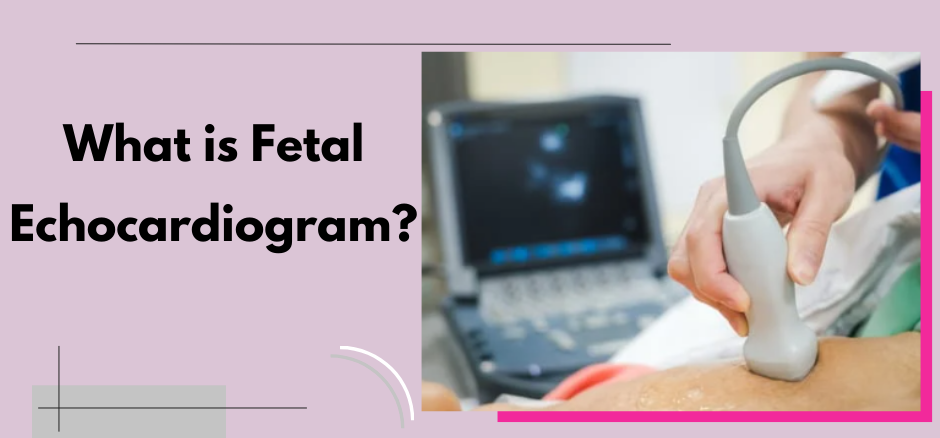A fetal echocardiogram is a specialized ultrasound that takes a close look at the developing baby’s heart inside the womb. It provides detailed images of the heart’s structure, chambers, valves, and blood vessels. This test is crucial in identifying any heart-related issues early in pregnancy, giving doctors a clear understanding of how the baby’s heart is functioning.
Unlike a routine ultrasound, a fetal echocardiogram is focused solely on the heart. It offers much more detailed information about the heart’s anatomy and how well it is working.
Why is a Fetal Echocardiogram Important?
Early detection of heart conditions in a baby can make a big difference in planning for treatment and care. Doctors recommend a fetal echocardiogram if:
- Abnormal ultrasound results: If a standard pregnancy ultrasound shows potential concerns with the heart.
- Family history: If heart disease runs in the family or previous pregnancies involved heart issues.
- Maternal health conditions: Conditions like diabetes, lupus, or certain infections during pregnancy increase the risk of heart problems in the baby.
- Medication use: Some medications taken during pregnancy can affect the baby’s heart development.
- Genetic concerns: If genetic testing reveals a higher risk for congenital defects or syndromes that may impact the heart.
In these cases, the fetal echocardiogram becomes a key diagnostic tool to assess heart health and plan for appropriate interventions.
What to Expect During the Test?
A fetal echocardiogram is similar to a regular ultrasound but provides a more detailed view of the baby’s heart. Here’s what happens during the procedure:
- Preparation: No special preparation is required. The mother lies down, and a clear gel is applied to the abdomen.
- Procedure: A device called a transducer is moved over the abdomen to send sound waves into the body. These waves bounce off the baby’s heart and create an image on a monitor.
- Viewing the Heart: The doctor or specialist watches the screen closely to examine the baby’s heart chambers, valves, and major blood vessels.
- Duration: The test typically takes between 30 to 60 minutes, depending on the complexity of the images needed.
- Safety: The test is completely safe, non-invasive, and painless for both mother and baby.
In some rare cases, a transvaginal ultrasound might be used if the heart needs to be seen more clearly. However, the abdominal approach is much more common.
What Can a Fetal Echocardiogram Detect?
This test can detect a wide range of heart problems in the developing baby, including:
- Congenital heart defects: Structural problems like holes in the heart, underdeveloped chambers, or improperly formed blood vessels.
- Arrhythmias: Abnormalities in the heart’s rhythm, such as the baby’s heart beating too fast or too slow.
- Heart function problems: It assesses how well the heart is pumping blood throughout the baby’s body.
- Valve issues: Problems with the heart valves not opening or closing properly.
Detecting these issues early allows doctors and parents to make important decisions about the care and delivery of the baby. If surgery or treatment is needed immediately after birth, the medical team can be fully prepared.
What Happens After the Test?
- Normal Results: If the results show that the baby’s heart is developing normally, no further heart testing is typically needed.
- Abnormal Results: If any issues are found, your doctor will discuss treatment options and may refer you to a pediatric cardiologist for follow-up care. In some cases, a treatment plan may be developed for after the baby is born, and you may also need additional ultrasounds to monitor the condition throughout the pregnancy.
Conclusion
A fetal echocardiogram is an important diagnostic tool that ensures the healthy development of your baby’s heart. It offers detailed insight into the heart’s function and structure, helping detect potential heart conditions early on. Early diagnosis means better preparation and care, both during the pregnancy and after the baby is born.
For reliable and expert fetal echocardiograms, consider visiting Neptune Diagnostics and Fetal Medicine Centre, a trusted Fetal Medicine Center in Ghatkopar. Their experienced team ensures comprehensive care for expecting mothers and babies, ensuring peace of mind throughout the pregnancy.

